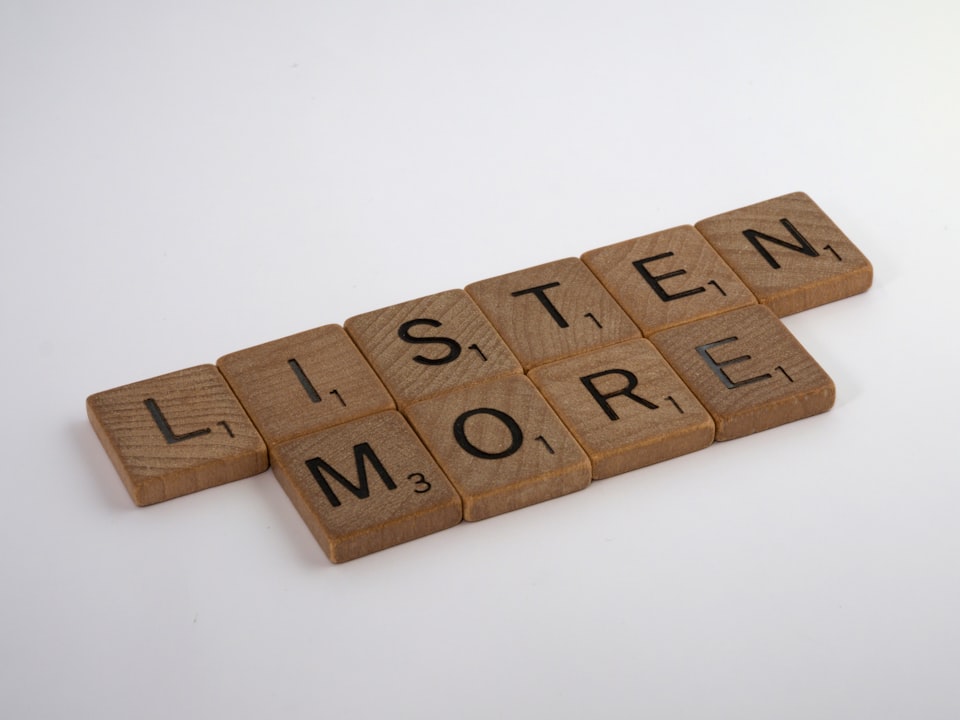How to listen

"When you talk, you are only repeating what you already know. But if you listen, you may learn something new." — Dalai Lama
In my life and career, I learned a lot about and through public speaking. As a people manager, it's part of my job. But where I learned way more is through listening, deep and uninterrupted listening.
In our hectic world, it happens all too often that we talk with each other, but we are not really listening. We barely wait until the other person shuts their mouth, and we can throw in our words related to what the person said, or not, as it were so important what we had to say.
I acted like that myself quite often, but I learned that listening thoroughly has more value than speaking by stepping back and observing.
Digest
In a chat with a former manager, he revealed that he thought I was a little slow initially, but soon he realized I think before I talk.
Sadly, this is not common. People tend to just answer without thinking. We are easy to trigger and can't withstand shouting our answer into the world before thinking about it for a second.
Therefore, an easy rule for me is to take at least one deep breath before answering, especially if it's a tense situation. For two reasons, this is a good practice. I am not answering out of anger; plus, I win some time to digest what has been said.
If I need more time, I repeat that process, even if I urge to answer. Better a complete answer that leaves no questions open than a half-assed chain of words nobody gains value from.
There are situations where it's not clear what your opponent wants to tell you. Good or bad, try to rephrase what they have said. Digest in public what you understood so that you are both on the same page. Nothing is worse than talking past each other.
Think about what really is said in a conversation and not only react to what has been said.
Wait
Not all talks are pleasant, sometimes you will have tough topics to discuss. This is not easy for everybody, especially then it's essential to be a good listener.
Seven seconds, that's a rule that I heard some years ago. Give people seven seconds after they finish their sentence. Count down and see if there is something else that they want to say.
This may sound stupid at first, but there is often more that needs to unfold. Sometimes it needs even more than seven seconds or a little nudge, but more on that at the end.
Count down from seven to zero in your head to see what the other person has on their chest.
Make Room
This one is especially for my fellow managers. We like to talk; heck, I love to talk.
But as the Dalai Lama says, we only repeat what we already know. Our employees may need to hear what we have to say, but the only place for long monologues is in books.
Shut up for a second, make room for feedback, ask for it, give the possibility for anonymous feedback in bigger groups. There are tools for it, like Slido or Pigeonhole.
If you keep long monologues in your leadership toolbox, you will only reach one thing, yawning and tired employees. Make room for interaction and learn to keep yourself back.
Just Listen
Probably you are reading this post on the phone, at least if we believe statistics. Hopefully, you are not doing that while listening to someone.
That may sound hard, but sometimes you have to just listen and do nothing else. Put all of your attention on the person that is talking to you. Make eye contact, and damn it, put that phone away.
I talked about it before; make room and let them tell you what they have to say. If there is no answer after seven seconds, wait a little longer, even if it seems awkward. You can also nudge the other a little bit and use open questions to develop that conversation.
But other than that, don't feel driven to hold a monologue or give your opinion. Just listen and see what you can learn.
Conclusion
Truly listening is hard, even harder than speaking.
These are the few things that I have learned, and maybe you will use them all together in a single conversation. There is no black and white.
Make sure to give room and attention to people and truly listen without distracting yourself.





Member discussion